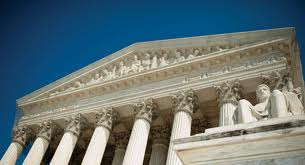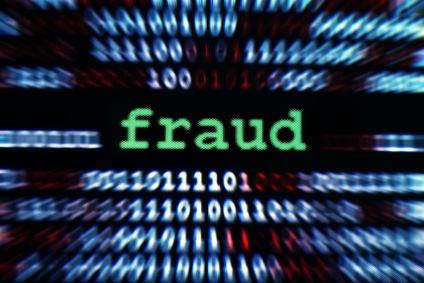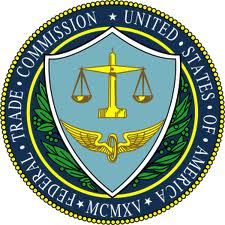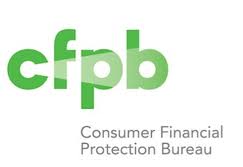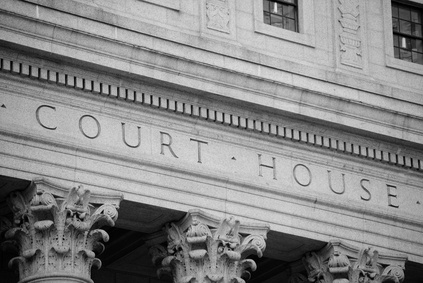The U.S. Court of Appeals for the Fourth Circuit recently rejected a challenge to a class action settlement by a group of consumers objecting to the release of statutory and punitive damages claims – but not claims for actual damages – in exchange for non-monetary injunctive relief under the federal Fair Credit Reporting Act (FCRA), holding that the district court did not abuse its discretion in approving the settlement or awarding attorney’s fees to class counsel. A copy of the opinion in Gregory Thomas Berry et al. v. LexisNexis Risk & Information Analytics Group Inc. et al. is available at: Link to…
Posts published in “Credit Reporting”
A credit reporting agency has settled a long-pending class action lawsuit in the U.S. District Court for the Eastern District of Virginia, agreeing to pay more than $3 million and remove from its consumer credit reports judgments entered in Virginia General District Court. The Fair Credit Reporting Act (FCRA) class action, Soutter v. Equifax Information Services LLC, was given the green light in April, with U.S. District Judge Robert E. Payne agreeing the standards for class certification had been met. In the class claim, plaintiff Donna K. Soutter contended Equifax willfully violated the FCRA when it failed to take reasonable…
Yesterday’s oral argument before the U.S. Supreme Court in Spokeo v. Robins suggests a struggle to fashion an understanding of what can constitute an “injury in fact.” It pitted the issue of whether a plaintiff’s standing to sue requires a tangible, concrete injury (loss of money, a job or property right) against the concept that the law can identify a “harm” (in this case, inaccurate information in a credit report) which itself is a real injury. Finding the Injury Spokeo v. Robins concerns an alleged violation of the Fair Credit Reporting Act. Robins claimed Spokeo compiled a report about him that contained false information…
The U.S. Court of Appeals for the Second Circuit recently held that identity theft claims under New York’s Fair Credit Reporting Act based on a bank’s alleged vicarious liability for identity theft supposedly perpetrated by its employees are not preempted by the federal Fair Credit Reporting Act (FCRA). However, to the extent that the claims could arguably be read to include the theory that the bank was liable because it furnished false information to consumer reporting agencies, the Court held that such claims are preempted under the FCRA because they plainly concern the bank’s legal responsibilities as a furnisher. A…
The United States District Court for the District of Massachusetts recently held that the federal Fair Credit Reporting Act (FCRA) preempts Massachusetts state law claims for violations of the Massachusetts Credit Reporting Act, Mass. Gen. Laws ch. 93, § 54A, and the Massachusetts Consumer Protection Act, Mass. Gen. Laws ch. 93A. The decision also held that the mere furnishing of information following a bankruptcy discharge, without more, is not actionable. A copy of the opinion is available at: Link to Opinion. The decision adds to a growing split among federal courts on both issues. Credit Reporting a Loan Modification and…
Furnishing information during and after a consumer bankruptcy is a complex task, and implicates the Bankruptcy Code, Fair Credit Reporting Act and Fair Debt Collection Practices Act. Recent litigation suggests that both the content and the timing of the furnished information poses unique risk to the credit and collections industry. And a recent string of lawsuits is raising the stakes on information furnished prior to bankruptcy. On Aug. 19 at 2 p.m. Eastern, we will offer our take on the top issues coming out of recent decisions and what you can do to contain risk and enhance your credit reporting…
The U.S. Court of Appeals for the Eighth Circuit recently affirmed the dismissal of a debtor’s federal Fair Debt Collection Practices Act (FDCPA), federal Fair Credit Reporting Act (FCRA), and state law claims where a debt collector for a major bank pulled the debtor’s credit report and served a garnishment summons after the debtor allegedly had sent a cease-and-desist letter to the debt collector. In so ruling, the Court confirmed that: (1) a debt collector may pull a debtor’s credit report for collection purposes, and that the debt collector did not need to notify the debtor before reviewing such information;…
Statutory damage claims, like those under the TCPA and the FCRA, will be scrutinized in the next session of the U.S. Supreme Court and its decisions could have broad implications for the financial services industry. Today we look at one of the cases the court will consider, Gomez v. Campbell-Ewald Co. The case considers whether an offer of complete relief to a litigant will extinguish both her individual claims and, prior to class certification, render her class claims moot. A decision will likely impact litigation under the FDCPA, TILA, EFTA and other federal laws, which can expose financial services companies to…
Auto lenders are in the cross-hairs of federal regulators. The Consumer Financial Protection Bureau recently announced it is drafting a larger nonbank participant rule for auto lenders. In the meantime, the Federal Trade Commission announced yesterday the filing of a stipulated order imposing a civil monetary penalty and injunctive relief against a subprime auto lender. Big Penalty, Restitution, Restrictions The Federal Trade Commission announced yesterday that Consumer Portfolio Services, Inc. will pay a civil monetary penalty of $5.5 million arising from its servicing and collection of consumer motor vehicle loans. In addition to the monetary penalty, the lender agreed to make certain changes to…
I’ll be heading to Park City, Utah this weekend for the Winter Meeting of the American Bar Association’s Consumer Financial Services Committee. The focus of the CFSC is on all things in consumer financial services law — payment systems, deposit accounts, fair lending and yes, debt collection. This meeting is going to feature several panel discussions with officials from the Consumer Financial Protection Bureau and the Federal Trade Commission along with well-known consumer advocates all discussing issues surrounding debt collection. Enforcement actions, the recent ANPR, TCPA litigation and CFPB regulation of attorneys are among the topics we’ll cover. As always, this…
Changes to the systems by which banks and other entities (also known as “furnishers”) supply credit reporting agencies with consumer credit information prompted a Bulletin yesterday from the Consumer Financial Protection Bureau emphasizing the greater role it sees documents playing in the consumer credit dispute process. In announcing its expectation that furnishers review “all relevant information” when responding to consumer disputes, the CFPB reiterates what is already required by FCRA’s section 1681s-2(b). When responding to a consumer’s dispute concerning information furnished by it to a credit reporting agency, a furnisher is required, among other things, to “review all relevant information provided by the CRA . . .”…
Today’s Decision of the Day is Vartanian v. Portfolio Recovery Associates, a Fair Credit Reporting Act (“FCRA”) opinion from the United States District Court for the Central District of California. The opinion examines the FCRA’s conflicting preemption provisions, § 1681t(b)(1)(F) and § 1681h(e), in the context of a claim arising from a person’s furnishing of information to a credit reporting agency. Section 1681t(b)(1)(F) can be read to preempt all state law claims, but at the same time others read § 1681h(e) as permitting state law claims based on willful or malicious conduct. Congress amended the FCRA in 1996 by adding § 1681t(b)(1)(F) to preempt “any state laws that imposed any ‘requirement or prohibition’…



